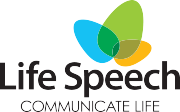By: Tejaswini BASLP(AUDIOLOGIST AND SPEECH LANGUAGE PATHOLOGIST)
Abstract: Children with Asperger’s Syndrome often have difficulties with social and communication interactions. The purpose of this article is to provide conceptual framework for understanding Asperger’s syndrome and its symptoms. How does it affects speech and language in children, and their development. This article also explains about the treatment options and support which can be stated to children with Asperger’s syndrome.
Introduction:
What is Asperger’s syndrome?
Asperger’s syndrome (AS) is a neurobiological disorder on the higher-functioning end of the autism spectrum. An individual’s symptoms can range from mild to severe. While sharing many of the same characteristics as other Autism Spectrum Disorders(ASD’s) including Pervasive developmental disorder-Not Otherwise Specified (PDD-NOS) and High-Functioning Autism(HFA). AS has been recognised as a distinct medical diagnosis in Europe for almost 60 years, but has only been included in U.S. medical diagnostic manual since 1994 (“Asperger Disorder” in the DSM-IV). ASPEN (asperger Autism SPectrum Education Network).
Children with Asperger’s disorder may be only mildly affected, and they frequently have good speech, language and cognitive skills.
Individuals with Asperger’s syndrome has following symptoms:

- Lack of social and communication interactions
- Difficulty in give and take conversations
- Robotic or repetitive speech
- Lack of eye contact
- Inability to understand emotional issues
- Impairment in nonverbal communication(Gestures, Facial Expression, Body Posture, Eye Gaze)
- Good rote memory skills but struggle with abstract concepts
- Speech and language skills impaired in the area of semantics, pragmatics and prosody(Volume, Intonation, Inflection, and Rhythm)
- Sensitive to environment, loud noises, clothing and food textures, and smell
- May not understand sarcasm and humor
- Frequently have motor delay and may appear clumsy and awkward
- Asperger disorder cannot have a “clinically significant” cognitive delay, and most possess average to above average intelligence
Treatment support for individuals affected by Asperger’s Syndrome:

- Cognitive behavioral therapy particularly helpful in learning social skills and self-control of emotions, obsessions and repetitive behaviours.
- Educational and social support programs help children with Asperger syndrome to teach social and adaptive skills step by step using highly structured activities.
- Parent training programs are also helpful for these children to teach at home.
- Group programs can also be helpful for social skills training. Speech and language therapy either in a group or one to one with therapist can help to improve conversational skills.
- Occupational and physical therapy may benefit for children with Asperger syndrome.
- Some persons affected by Asperger syndrome helped by medications to treat problems such as anxiety, depression and Hyperactivity and ADHD.
- Most experts feels that early intervention would be the better outcome for Asperger syndrome.
Reference:
- Asperger Syndrome: A Guide for parents and professionals, Tony Attwood
- Autism Speaks
- ASPEN (asperger Autism Spectrum Education Network)
- Centers for Disease control and Prevention Autism Information Center

